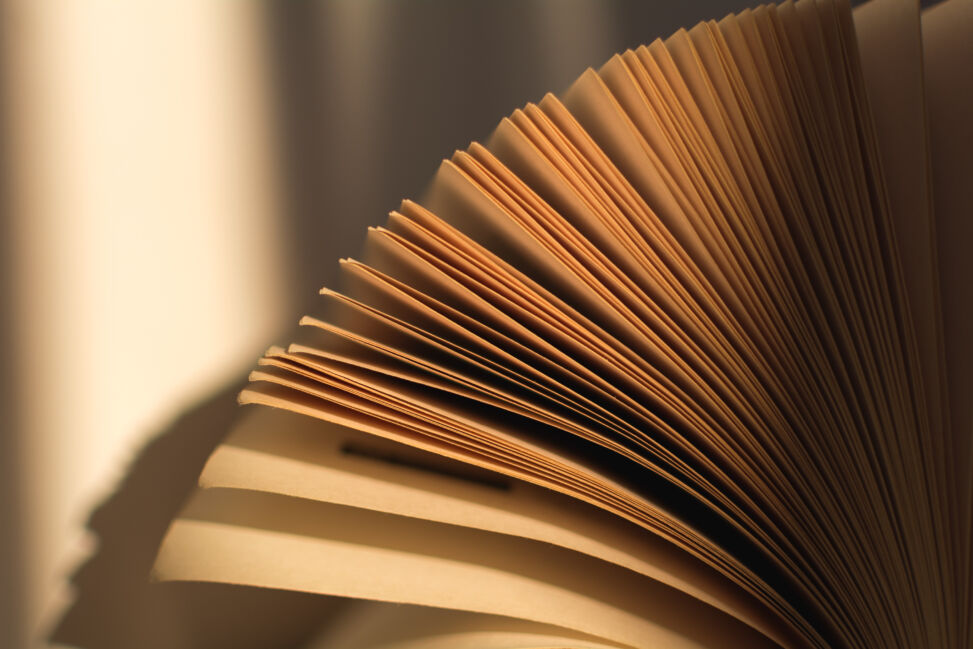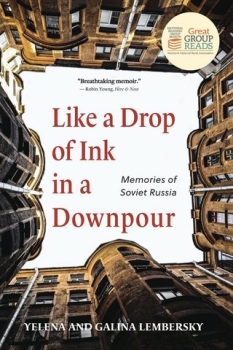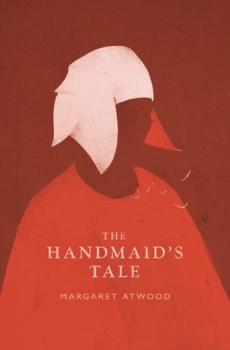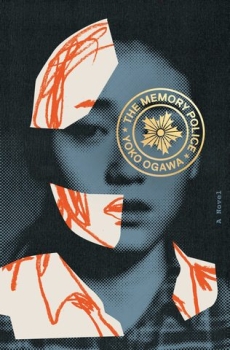Like a Drop of Ink in a Downpour: Memories of Soviet Russia - Yelena and Galina Lembersky
Yelena (Alëna) Lembersky is the grand-daughter of Felix Lembersky, Leningrad/St. Petersburg artist (1913-1970) whose works, as Yelena describes in this memoir, were not always recognized or celebrated by Soviet political leaders. He nevertheless continued to produce artwork throughout his life. When he died, he left his widow, daughter Galina and grand-daughter Yelena with a rich collection of his works. As the family, like other Jewish citizens of the Soviet Union, considered the pros and cons of pursuing emigration in the early 1980s, they had also to secure permission to bring Felix Lembersky’s art with them. Besides that challenge, they also had to deal with a host of legal issues that were wrapped up with a repressive regime and a corrupted society.
The co-authored memoir – written in Yelena/Alëna’s and Galina’s voices—is organized around warm memories of friendship and resilience in their native St. Petersburg, as well as the troubles they endured, including their extended separation when Galina was imprisoned for refusing to support false accusations against her co-workers at Kosmetika, a state-owned company that provided hairdressing and beauty services. The memoir paints a detailed picture of family, school and professional life, as the systemic problems generated by centralized economic planning corroded interpersonal relations, as well as the rule of law.
The main arc of the book takes place between Galina’s trial in September 1981 and their eventual successful emigration in March 1987.
Don't miss Yelena's Brushstrokes of Courage video a part of our Creative Horizon: Art in the Post-Soviet Era series.
The book club is hosted at the Tempe Public Library, convened by Keith Brown. [email protected]. For the latest book club meeting register at: tempepubliclibrary.org and click Event Calendar.
Some start-up questions for discussion.
Alëna narrates the first and final sections, which are interrupted by Galina’s story, addressed directly to her daughter. Alëna had recorded her mother’s recollections but chose to keep her voice as a direct address to Alëna. What do you make of this? Why do you think she framed Part 2 in that way?
What does the dual point-of-view structure add to the narrative? What does it take away?
Yelena recalls her grandfather’s explicit guidance to avoid art, and describes her grandmother’s silence about the past and their faith, as “white sheets are dropped over dark places” (p55). Would you make the same choices as they did, to try to protect family members?
What do we learn about the factors which persuade some people (Galina’s ex-husband, co-workers at Kosmetika, some prisoners) to collaborate with the security services, while others (Galina, Yuri) refuse to do so?
The memoir includes observations of military veterans’ trauma, men’s alcohol use, and instances of violence, cruelty and vindictiveness. How does trauma travel through society? Who can heal it, and how?
Some thematic threads
Pain and trauma in the Russian and Soviet past. Evoked early in the images of veterans, carrying both the physical and mental scars of the brutal experience of World War II.
Psychological/emotional trauma. Examples include: denunciations due to jealousy or score-settling, sham trials, surveillance, disregard for the welfare of detainees and their children, blackmail by the secret police.
The challenge of maintaining one’s principles and beliefs. Yelena asserts that “every Russian knows that there is no sin more vile than being an informant” (p27) and Galina shares the proverb “Words are silver, silence is gold” (p108). Yelena remembers Galina teaching her, as a child, that one should not tell stories that are not one’s own, even when audiences ask for them (p31).
Devotion to art. Their family tenet is that “art comes before anything else,” and the book illustrates the high price that devotion to art can extract, while also providing hope to sustain the devotion. Alëna muses on art (zhivopis = “writing what is alive”) as “a view into a hidden dimension, the revelation, the truth that can’t be told in any other way” (p232)
Sense of displacement, uprooting and living in a state of waiting. Examples include: changing apartments: selling or exchanging things with memories attached to them; waiting for legal processes.
The slow awareness and then embrace of the family’s Jewish heritage. From Felix’s paintings (some with coded, subversive inclusion of Jewish symbols), to whisperings about the word “Jew,” to furtive synagogue visits and secret Hebrew lessons, and eventually to full acceptance of their faith.
Mother and daughter identities and ties. The lines between mother and daughter blur. Alëna grapples with situations no child should bear, and Galina becomes dependent on her daughter to sustain her through imprisonment. As an adult, Alëna reflected on her own dual role, calling her mother “a child, whom I failed to protect. My child-Mama.”
The impact of domestic and world politics on family life: the 1982 death of Brezhnev, the anti-corruption crusade by Andropov (p146-8); Alena’s father’s job on the international railway connection to Finland (p71-74); histories of extortion in the family (p110).
Additional resources:
Felix Lembersky’s artwork, at the University of Michigan, can be viewed at https://lembersky.org/
Brushstrokes of Courage: A video from our Creative Horizon Series made with Yelena Lembersky on the occassion of her visit to the Florida Holocaust Museum in St. Petersburg. Yelena spoke to students and faculty on the USF Tampa campus and she gave a lecture at the Florida Holocaust Museum, which displayed her grandfather's paintings of the Holocaust.
Among reviews/interviews related to Yelena’s and Galina’s memoir are:

Yelena Lembersky grew up in Leningrad, now Saint Petersburg, in 1969. As a child, she studied painting, piano, and classical guitar, and learned English since she was eight.
In 1987, she and her mother, Galina Lembersky, emigrated to the United States. Yelena continued her studies at the University of Michigan, graduating with a double Bachelors in Art and Science in 1991. She moved to Cambridge, Massachusetts, to pursue her Masters of Architecture at MIT.
While working as an architect, she began to research her grandfather’s art, which led to her first book, a monograph, Felix Lembersky: Paintings and Drawings, published by Galart in 2009.



